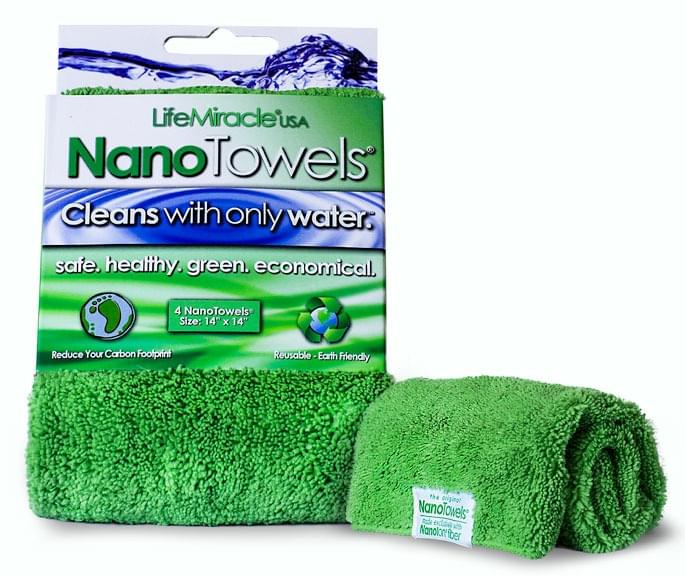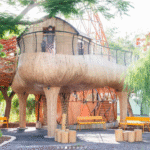Safiyaa is a London-based fashion label founded in 2011 by Daniela Karnuts, known for its commitment to sustainable luxury and modern elegance. The brand offers made-to-order gowns crafted by a single artisan, ensuring minimal waste and a personalized fit.
The post Sustainable Luxury: How Daniela Karnuts’ Safiyaa Leads the Eco-Friendly Demi-Couture Movement appeared first on Green Prophet.
Safiyaa is a London-based fashion label founded in 2011 by Daniela Karnuts, known for its commitment to sustainable luxury and modern elegance. The brand offers made-to-order gowns crafted by a single artisan, ensuring minimal waste and a personalized fit.
In an industry notorious for its environmental footprint, demi-couture brand Safiyaa stands as a compelling counterexample. Founded by Daniela Karnuts in 2011, the London-based label has quietly revolutionized luxury fashion not just through its timeless designs, but through a business model that inherently addresses fashion’s sustainability crisis. While the industry produces an estimated 92 million tons of textile waste annually and accounts for 10% of global carbon emissions, Safiyaa’s approach offers a radical alternative—one where waste is eliminated before it begins.
“The most sustainable garment is the one you keep wearing,” Karnuts has noted, cutting through the greenwashing that often characterizes fashion’s environmental messaging. This simple observation forms the foundation of Safiyaa’s sustainability ethos, where longevity isn’t just a marketing angle but a core design principle. As consumers increasingly reject the disposability of fast fashion and question the environmental costs of their purchasing decisions, Safiyaa’s model demonstrates how luxury brands can align environmental responsibility with business success.
The brand’s made-to-order approach isn’t just better for the planet—it represents a fundamental reimagining of the relationship between fashion brands and consumers. Rather than producing seasonal collections based on predicted trends and hoping they sell, Safiyaa creates garments only when ordered, eliminating the industry-wide problem of unsold inventory that often ends up in landfills or incinerators. This precision-based production model has positioned Karnuts at the forefront of fashion’s sustainability movement, proving that eco-friendly practices can enhance rather than compromise luxury appeal.
Rethinking Production: The Environmental Benefits of Made-to-Order
Traditional fashion production follows a speculative model: brands create collections months in advance, produce them in volume, and then push them to market through aggressive marketing. This approach inevitably leads to overproduction, with the fashion industry routinely creating far more garments than the market can absorb. The result is staggering waste—deadstock clothing that sits in warehouses, sells at deep discounts that undermine brand value, or ends up destroyed.
Safiyaa disrupts this wasteful cycle through its made-to-order model. “Every Safiyaa item is developed and made to order at the brand’s London, New York, and Istanbul ateliers,” the company states. This approach serves multiple environmental functions simultaneously. It eliminates excess inventory, conserves raw materials, reduces energy consumption in manufacturing, and decreases the carbon footprint associated with storing and shipping unwanted products.
The environmental benefits extend beyond waste reduction. By producing locally in its ateliers rather than outsourcing to distant factories, Safiyaa minimizes transportation emissions that would otherwise be generated by shipping materials and finished products across global supply chains. This localized production also allows for tighter quality control, ensuring that each garment meets the brand’s exacting standards—another factor that contributes to longevity.
“Safiyaa remains an independent vertically integrated family-owned company, dedicated to bridging the gap between a bespoke made-to-measure service and customized technology designed to avoid over production,” the brand explains. This vertical integration gives Karnuts unprecedented control over the entire production process, from design to delivery, enabling a level of environmental stewardship that would be impossible in a more fragmented supply chain.
Material Matters: Fabric Selection as Environmental Strategy
While Safiyaa’s made-to-order model addresses the quantity side of fashion’s environmental equation, the brand’s approach to materials addresses the quality dimension. Karnuts has built Safiyaa around “luxurious fabrics” selected not just for their aesthetic appeal but for their durability and longevity—characteristics that are inherently eco-friendly.
The fashion industry’s shift toward sustainable materials has accelerated in recent years, with eco-friendly demi-couture brands increasingly embracing organic cotton, hemp, recycled polyester, and deadstock fabrics. These materials require fewer resources to produce, generate less pollution, and often have a significantly lower carbon footprint than their conventional counterparts.
Safiyaa’s emphasis on “rich colors and luxurious fabrics” reflects this growing awareness of material sustainability. By selecting high-quality materials that maintain their appearance and structural integrity over time, Karnuts ensures that Safiyaa garments remain wearable for years or even decades—a stark contrast to fast fashion items designed to last only a few wears.
This focus on material quality connects directly to Karnuts’ founding vision. When she launched Safiyaa, she was responding to a gap in the market for women’s clothing that matched the longevity and investment value of men’s tailoring. “It was thus that Safiyaa, named after her daughter and meaning purity, was formed,” the brand explains. This pursuit of “purity” extends to the environmental dimension, with Safiyaa’s materials selected to withstand both changing trends and physical wear.
Beyond Seasonality: Timeless Design as Environmental Practice
Perhaps the most revolutionary aspect of Safiyaa’s environmental approach is its rejection of fashion’s seasonal cycle. Where conventional luxury brands introduce entirely new collections multiple times per year, encouraging consumers to constantly update their wardrobes, Safiyaa focuses on “timeless, elegant pieces that endure beyond a single season.”
This seasonless approach represents a profound environmental statement. By creating garments designed to transcend fleeting trends, Karnuts challenges the planned obsolescence built into most fashion business models. Safiyaa pieces aren’t designed to look dated after six months—they’re created to remain relevant and desirable for years, reducing the pressure on consumers to continually replace their wardrobes.
“When it feels impossible to keep up with the latest trend cycles, Safiyaa offers a wardrobe built on foundational pieces that remain relevant year after year,” the brand notes. “Karnuts has focused on perfecting a core range of pieces that are designed to last, keeping up with consumer sentiment by introducing new categories such as bridal and loungewear rather than making larger collections.”
This philosophy aligns perfectly with the emerging eco-friendly demi-couture movement, which emphasizes “seasonless collections” focused on “timeless designs rather than seasonal trends.” By encouraging customers to invest in pieces that can be worn for years, this approach reduces the environmental impact associated with frequent fashion purchases.
Craftsmanship as Conservation: The Environmental Value of Quality
Central to Safiyaa’s sustainability credentials is its commitment to craftsmanship. Each piece is “made by a team of dedicated artisans to create elevated, versatile collections made for women by women.” This artisanal approach stands in stark contrast to mass production methods that prioritize speed and cost over quality and durability.
The environmental benefits of craftsmanship are substantial but often overlooked in sustainability discussions. Garments that are meticulously constructed by skilled artisans typically last longer, reducing the need for replacement and keeping textiles out of landfills. The attention to detail in construction—precise seams, proper finishing, strategic reinforcement—ensures that Safiyaa pieces maintain their structural integrity through years of wear.
“Known for sharp tailoring and form fitting silhouettes,” Safiyaa exemplifies how craftsmanship contributes to environmental sustainability. The brand’s emphasis on tailoring ensures that each garment fits its wearer perfectly, increasing the likelihood that it will remain a wardrobe staple rather than being discarded due to poor fit or construction.
This focus on quality over quantity represents a return to pre-industrial values in clothing production. Before the rise of fast fashion, garments were significant investments, carefully maintained and often passed down through generations. Safiyaa’s approach helps revive this tradition of clothing as long-term investment, with all the environmental benefits that entails.
Technology as Environmental Enabler
While Safiyaa honors traditional craftsmanship, it doesn’t shy away from technological innovation that can enhance sustainability. The brand is “committed to bridging the gap between a bespoke made-to-measure service and customized technology designed to avoid over production.”
This integration of technology into the made-to-order process represents an important evolution in eco-friendly demi-couture. By leveraging digital tools to streamline ordering, pattern-making, and production planning, Safiyaa can deliver customized garments with remarkable efficiency, reducing resource waste while maintaining quality.
“Safiyaa delivers power of choice and connects the craftsmanship to the client,” the brand explains. This direct connection between artisan and client, facilitated by technology, eliminates many of the inefficiencies in traditional fashion supply chains. Customers receive exactly what they want, artisans create pieces they know will be appreciated, and the environmental waste associated with mass production is avoided.
The Future of Sustainable Luxury
As Safiyaa moves “into its second decade of solid growth and global expansion,” Daniela Karnuts’ approach to eco-friendly demi-couture offers valuable lessons for the broader luxury industry. By combining traditional craftsmanship with innovative production models and a steadfast commitment to timeless design, Safiyaa demonstrates that environmental responsibility and business success can be mutually reinforcing rather than mutually exclusive.
“Imbuing traditional artisanal principles with pioneering technology are just part of Safiyaa’s commitment to leading a responsible, transparent and forward-thinking company with integrity and innovation at its core,” the brand states. This integration of old-world craft and modern efficiency creates a blueprint for sustainable luxury that other brands would be wise to study.
In a world increasingly conscious of fashion’s environmental impact, Safiyaa’s model offers a compelling vision of how the industry might evolve. By creating garments designed to last physically and aesthetically, producing only what customers actually want, and maintaining exacting standards of craftsmanship, Daniela Karnuts isn’t just building a successful luxury brand—she’s helping redefine what luxury means in an age of environmental awareness.
As consumers increasingly demand that their purchases reflect their values, Safiyaa’s eco-friendly approach to demi-couture positions the brand for continued relevance and growth. By demonstrating that sustainability can enhance rather than compromise luxury appeal, Karnuts has created more than just a fashion label—she’s created a model for how we might consume more thoughtfully in a resource-constrained world.
The post Sustainable Luxury: How Daniela Karnuts’ Safiyaa Leads the Eco-Friendly Demi-Couture Movement appeared first on Green Prophet.
Recommended Story For You :

Bringing Dead Batteries Back To Life Is Simple!

SEPTIFIX to the Rescue! Say Goodbye to Problems and Hello to Savings

Ecomposing of Paper Towels Produce Methane Gas

A Leading Cause Of Global Warming!

A cleaner world where energy is abundant essentially free

and sourced directly out of the inherent power of the space surrounding us.

MIT Discovery can cut power bills by 65%

Easy DIY Power Plan Will Change Our World Forever

Discover the World with Our Passionate Geography Teacher in Memphis!




